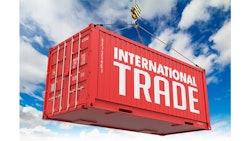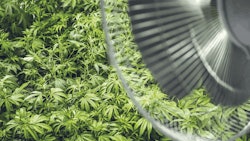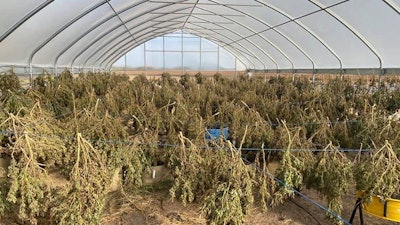
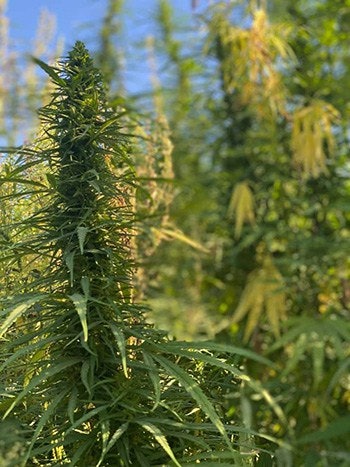 hemp cbd
hemp cbdWhen Kansas embarked on its industrial hemp program in 2019, Melissa Nelson-Baldwin and her family saw the crop as an opportunity. She and her husband, Aaron Baldwin, and his brother, Richard Baldwin, had the sort of background that met a newly legal crop with aplomb. Melissa worked in crop research, and the Baldwin brothers were fourth-generation farmers in Great Bend, Kan, a small city nearly in the center of the state.
Last year, the South Bend Industrial Hemp team set out to grow 1,500 CBD plants and another 80 acres of dry-land fiber. In 2020, they continued with the same numbers of CBD plants and switched over to 55 acres of irrigated fiber and grain varieties. “Our fiber variety was extremely successful this year,” Melissa says. “We did extremely well with the grain, as well.”
The only problem is that the processor they had lined up to purchase their crop lost his funding. It’s not an uncommon tale in this burgeoning industry.
So, the South Bend team cooked up a new plan: They would build out their own fiber processing plant.
"Richard, Aaron, and I had always had that vision,” Melissa says. “We believe very strongly in Kansas agriculture—and agriculture in general—and we're very proud of the state that we all grew up in and the farming community that we're in. So, we just sat down and started crunching the numbers and, you know, we need to do this because right now, as you know, that is really a limiting factor in the fiber industry—the facilities.”
She paints a chicken-or-egg scenario that’s currently stifling the development of a fiber market segment in the U.S.: Processors aren’t going to get up and running if farmers aren’t planting fiber crops. And farmers aren’t going to put those crops in the ground if there’s nowhere to sell them. “There’s just not a lot of room for risk,” Melissa says, echoing the thin margins that abound in much of American agriculture.
If risk is the name of the game, the South Bend team at least has decades of experience to draw upon in this endeavor. Even in just the past two years of hemp cultivation, Melissa says the team has made do with the equipment that already existed on their farm—resisting the lure of specialty equipment for new crops.
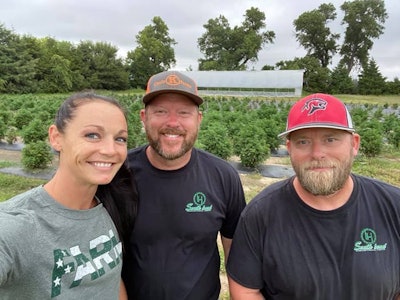 south bend industrial hemp
south bend industrial hempEarlier this year, the USDA approved Kansas’ plan to regulate hemp beginning in 2021. As of late September, the state of Kansas reported 207 licensed growers for this year and 23 processors. It’s the start of what Melissa and her team see as a bountiful opportunity for farmers interested in diversifying their portfolios and selling into a growth market.
“We have farmers here that are interested in converting acres over, especially when you look at your return on investment,” Melissa says. “And, thankfully, we had a very successful seed crop this year. We know we've vetted this variety. We know it performs well in this area. If we can sell that to our farmers and, in turn, give them a contract that we will take their fiber as long as it is at a specific quality that we can run through our processing equipment, the farmers then can get insurance—because you can't get crop insurance if you don't have a contract. … We can provide and mitigate some of that risk that these farmers are going into.”
And the other thing that hemp can provide is economic development. Melissa says that the crop and the company’s plans have allowed them to fully consider Great Bend.
As summer ticked into fall, the team scouted older buildings with loading docks and proximity to rail. Their plan is to retrofit their buildings to fit their electrical needs and, ideally, open for business shortly after the new year.
It’s a simple ethos, she says: Let’s make Great Bend better.
And, furthermore, a fiber processing plan in the heart of the state will set up Kansas farmers for an even bigger 2021.
“We think that there's enough room at the table for everybody,” Melissa says. “We would like to help farmers be successful. There's no reason that they should encounter the same bumps in the road that we did, because at the end of the day, if they're successful, it's going to continue to move this industry forward and then we're all going to be successful.”










